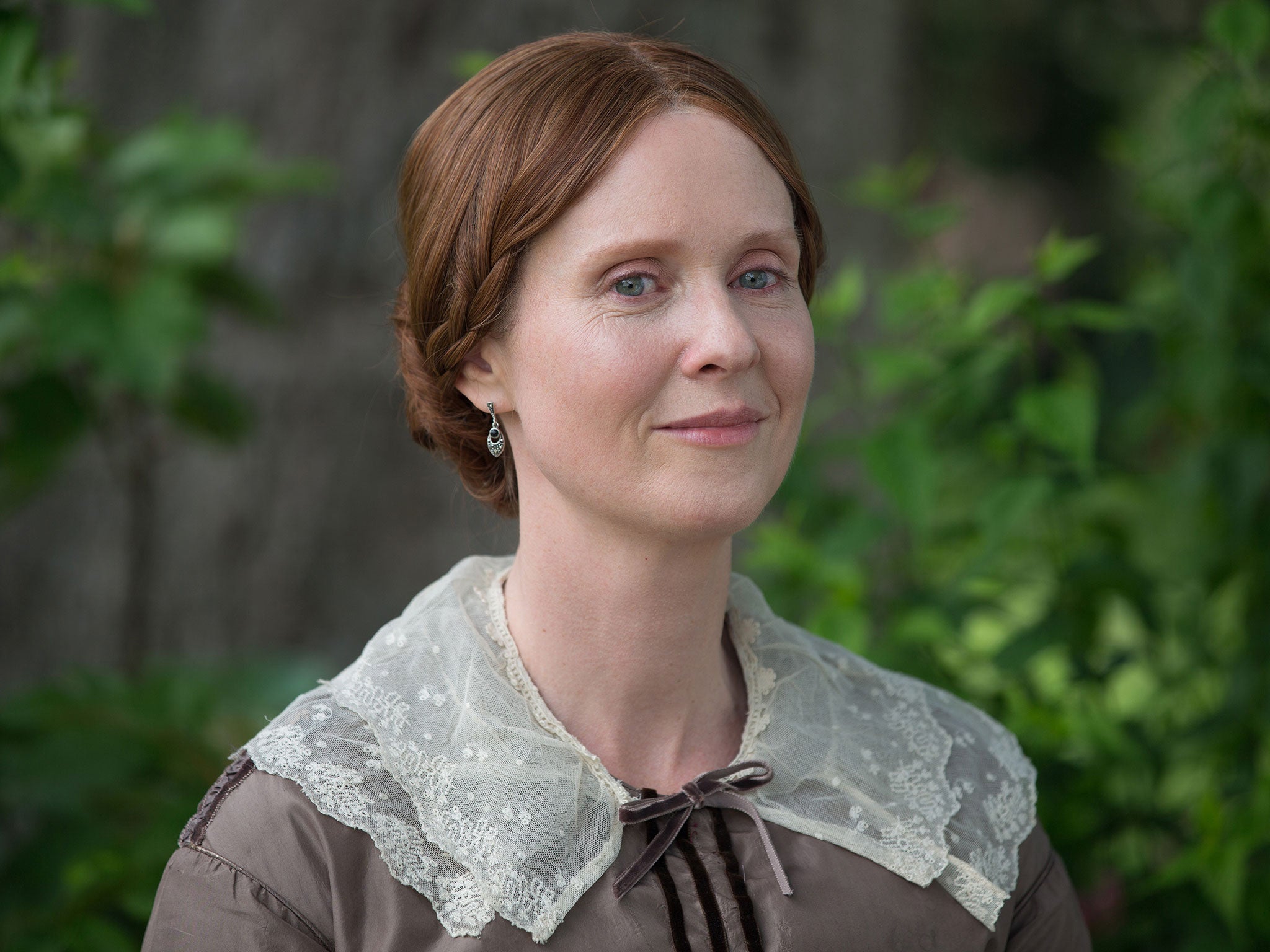A Quiet Passion, film review: Davies meets Dickinson and the result is a masterpiece of mood
It is an exceptional film with a searing central performance from Cynthia Nixon

Your support helps us to tell the story
From reproductive rights to climate change to Big Tech, The Independent is on the ground when the story is developing. Whether it's investigating the financials of Elon Musk's pro-Trump PAC or producing our latest documentary, 'The A Word', which shines a light on the American women fighting for reproductive rights, we know how important it is to parse out the facts from the messaging.
At such a critical moment in US history, we need reporters on the ground. Your donation allows us to keep sending journalists to speak to both sides of the story.
The Independent is trusted by Americans across the entire political spectrum. And unlike many other quality news outlets, we choose not to lock Americans out of our reporting and analysis with paywalls. We believe quality journalism should be available to everyone, paid for by those who can afford it.
Your support makes all the difference.Films by Terence Davies tend not to come along very often. He is indisputably one of the great British directors of his era, but he is not one of the most prolific. It is therefore all the more heartening to encounter A Quiet Passion only a few months after his last feature, Sunset Song, was in cinemas.
A Quiet Passion is a biopic of the 19th-century American poet Emily Dickinson. It is an exceptional film with a searing central performance from Cynthia Nixon in a role a long way removed from her Miranda Hobbes in Sex And The City.
As any student who has encountered Dickinson knows, the poet’s life was not outwardly eventful. After a stint at seminary school, she lived at home with her family in Amherst, Massachusetts. She never married. Only a handful of the huge number of poems she wrote were published in her lifetime. Outwardly, she may have seemed prim and self-effacing, but as Davies and Nixon brilliantly show, she was in fact a fiery, passionate figure who questioned every aspect of the patriarchal society in which she lived.
The mood of A Quiet Passion switches dramatically. In its first half, the film has a jaunty, comic air. We see Emily (played as a young woman by Emma Bell) exasperating her teachers by refusing to accept their strictures on religion. Back home, she strikes up a firm friendship with Miss Buffum (Catherine Bailey), a wonderfully cynical and witty neighbour with an acerbic tongue.
With its sweeping camera work and shots of the defiant womenfolk twirling their parasols and snapping their fans, the film resembles one of those old Hollywood musicals that Davies so admires. There are dance sequences and much more colour than you might expect.
Much of the film is set indoors. This is a very faithful recreation of Dickinson’s world but it never feels stolid. The fluid cinematography – those wonderful gliding shots that are found in many of Davies’s films – and the sheer liveliness of the writing and the performances add energy to the storytelling. From time to time, we hear passages of Dickinson’s verse, read beautifully by Nixon, on the soundtrack.
The key events in Dickinson’s life we are presented with include her obsession with Wadsworth (Eric Loren), the married, Heathcliff-like clergyman who recognises her genius; and her encounter with the bumbling publisher who cuts out the punctuation from her poems, little realising the importance Emily attaches to her dots and dashes.
In its second half, the tone of A Quiet Passion darkens. Dickinson is confronted with illness, death and extreme disappointment. At times, she herself can behave very viciously (for example, when she encounters sexual betrayal).
In its depiction of physical pain, the film rekindles memories both of Bergman’s Cries And Whispers and of the death scene in Davies’s own Distant Voices, Still Lives.

Watch Apple TV+ free for 7 days
New subscribers only. £8.99/mo. after free trial. Plan auto-renews until cancelled

Watch Apple TV+ free for 7 days
New subscribers only. £8.99/mo. after free trial. Plan auto-renews until cancelled
The film, though, ends with grace and lyricism – and a very moving rendition of what is probably Dickinson’s best-known poem: “Because I could not stop for Death – He kindly stopped for me...”
Join our commenting forum
Join thought-provoking conversations, follow other Independent readers and see their replies
Comments